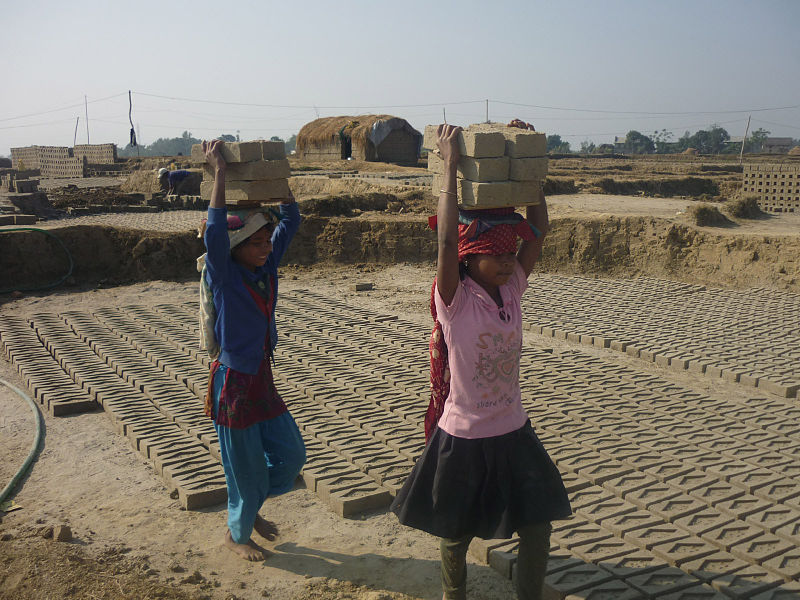Millions of Pakistanis in slave-like conditions
The European Union Agency for Asylum released a report documenting the practice, especially through debt bondage. In one year, more than 28,000 Pakistanis have requested international protection upon arrival in the EU and 34,000 cases are pending. The report highlights the deterioration of democracy and an increase in violence, especially in Khyber Pakhtunkhwa and Balochistan.
Islamabad (AsiaNews) – Pakistan is among the countries most vulnerable to modern forms of slavery, which affects an estimated three to 4.5 million people, this according to a report published yesterday by the European Union Agency for Asylum, an entity created in 2022 to assist member countries with reception procedures.
For the first time, the agency drafted a report for the South Asian country. From October 2023 to October 2024, 28,000 Pakistani nationals filed for international protection in the EU, mainly in Italy, France, Greece, and Germany.
Only 12 per cent of applicants were granted refugee status (because of persecution for reasons of race, religion, nationality, membership of a particular social group, or political opinion); others were given subsidiary protection (for those who do not meet the criteria as refugees but in respect of whom substantial grounds have been shown to believe that the person concerned, if returned to their country of origin, runs the risk of torture, death penalty or finding themselves in violent situations due to conflicts).
As of late October 2024, 34,000 applications are still pending at first instance.
In the case of Pakistan, socio-political conditions force people to leave the country, while an estimated 2.4 million have been forced to work or marry against their will.
The most common form of modern slavery is linked to debt bondage or bonded labour. In the province of Sindh alone, an estimated 600,000 people, mostly Christians and Hindu Dalits (constantly victims of the misuse of the blasphemy legislation), are subjected to forced labour, while about 700,000 children have been forced to work at brick kilns across the country, out of three to 4.5 million people in slavery.
The system of exploitation is based on the traditional practice of granting loans to workers, called "Peshgi" or "Begar", that are impossible to repay due to high interest rates and the exploitative practices by their employers-cum-lenders.
According to various investigations, human trafficking has also increased due to climate change, especially floods, mounting poverty, displacements, and food insecurity.
Pakistani authorities are unable to uphold laws and regulations designed to protect vulnerable individuals due to the growing weakening of the country’s democracy. Widespread corruption and complicity of state officials in trafficking have hampered law enforcement and created a culture of impunity.
Afghan migrants – about three million – are also among the persecuted groups. After a repatriation programme was launched in September 2023, more than 738,000 were expelled, creating an increasingly hostile environment, reads the EU document.
Citing data from some of the main local research centres, the EU agency has documented the rise in violence, particularly in Khyber Pakhtunkhwa and Balochistan, where the Pakistani Taliban (Tehrik-e Taliban Pakistan or TTP) and the Baloch Liberation Army (BLA) are active. About 84 per cent of terrorism incidents and security force operations occurred in these two provinces.
In September 2024, Balochistan surpassed Khyber Pakhtunkhwa for the first time in the number of terrorist attacks, while Pashtun-majority regions continue to record 64 per cent of all victims of violent incidents, rising from about 700 per year in 2020 to 1,800 in 2023.
Researchers note a growing weakening of state power in these two provinces despite several anti-terrorism campaigns. Case in point: In October this year, the Peshawar High Court (Khyber Pakhtunkhwa) ordered all courts in the districts of South Waziristan and Tank to move to Dera Ismail Khan, following multiple attacks on judges.
The report notes that the Islamic State in Khorasan Province (ISKP) is also intensifying its activity, using artificial intelligence, among other things, to spread its propaganda.
Khyber Pakhtunkhwa and Balochistan also account for the highest number of enforced disappearances, which the government uses to suppress critical voices: journalists, human rights defenders, and members of ethnic and religious minorities.
According to the United Nations Committee on the Elimination of Racial Discrimination, more than 10,000 cases of enforced disappearances have been filed in Pakistan in the latest period reviewed.
Great political uncertainty also grips the country as well. The imprisonment of former Prime Minister Imran Khan and the crackdown on his party, the Pakistan Tehreek-e-Insaf (PTI), have sparked nationwide protests, resulting in fresh political turmoil.
Even at the economic level, there are no improvements. Poverty, inflation and unemployment rates have been rising and the austerity measures imposed by the International Monetary Fund as a guarantee for low-interest loans have not alleviated the financial difficulties of the Pakistani population.
18/10/2017 18:25
02/09/2022 17:59
09/10/2007







.png)










